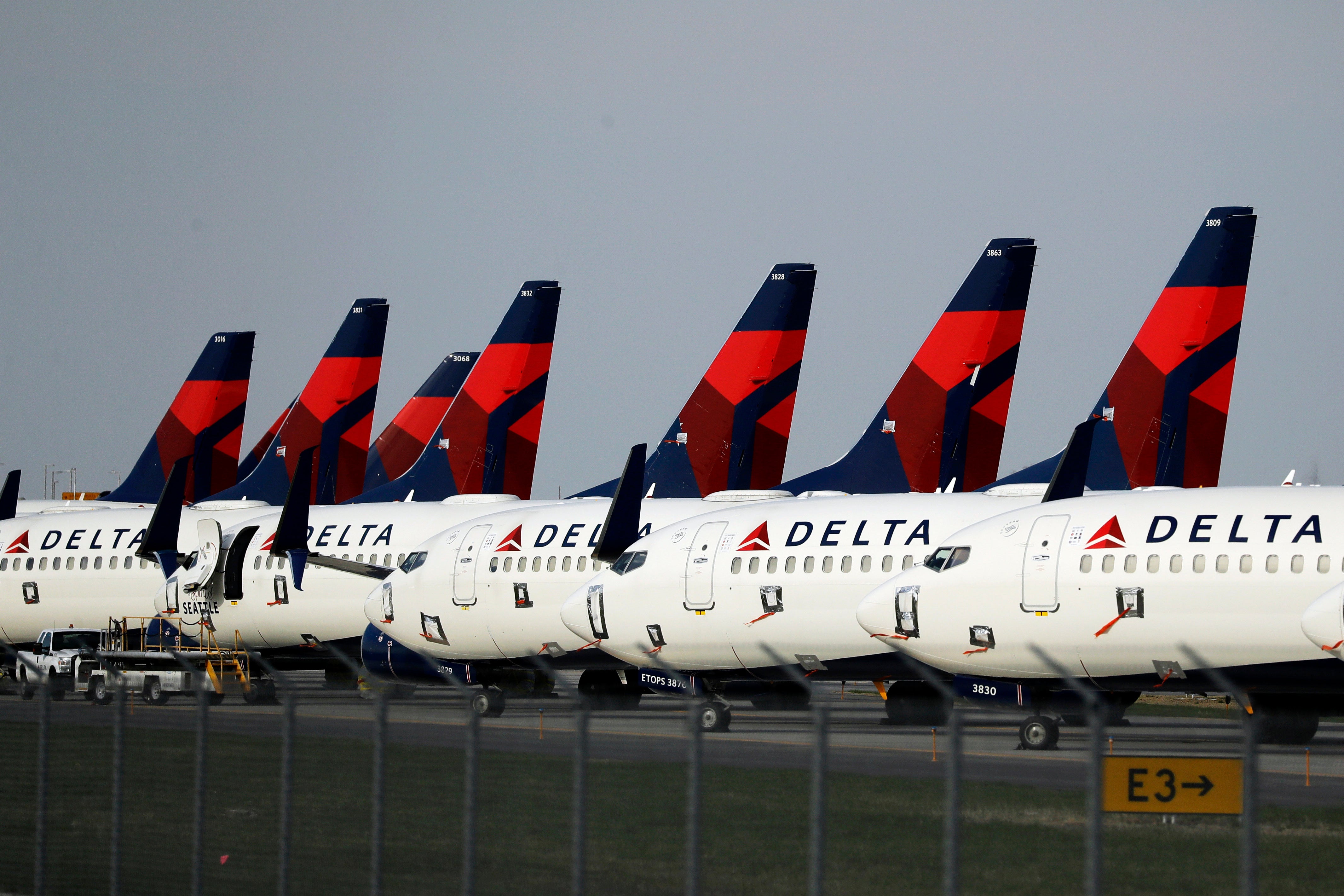Arbitrator rules that FAA chief aided retaliation case
A Labor Department judge says that when the head of the Federal Aviation Administration worked at Delta Air Lines he helped Delta retaliate against a pilot who raised safety concerns

Your support helps us to tell the story
From reproductive rights to climate change to Big Tech, The Independent is on the ground when the story is developing. Whether it's investigating the financials of Elon Musk's pro-Trump PAC or producing our latest documentary, 'The A Word', which shines a light on the American women fighting for reproductive rights, we know how important it is to parse out the facts from the messaging.
At such a critical moment in US history, we need reporters on the ground. Your donation allows us to keep sending journalists to speak to both sides of the story.
The Independent is trusted by Americans across the entire political spectrum. And unlike many other quality news outlets, we choose not to lock Americans out of our reporting and analysis with paywalls. We believe quality journalism should be available to everyone, paid for by those who can afford it.
Your support makes all the difference.A U.S. Labor Department judge says the head of the Federal Aviation Administration helped Delta Air Lines retaliate against a pilot who raised safety concerns while he was an executive with the airline.
An administrative law judge for the department ruled that Stephen Dickson and other Delta executives steered a human-resources procedure so that the pilot would undergo a psychiatric evaluation that independent doctors deemed unwarranted.
Delta said Monday that it plans to appeal the ruling. The FAA declined to comment on the ruling, instead pointing to Dickson’s past comments on the case, including that he wasn’t deeply involved in it.
The pilot, Karlene Petitt sued Atlanta-based Delta in a Labor Department administrative proceeding in 2016. In the decision dated last week, administrative law judge Scott Morris agreed with Petitt that Delta ordered the psychiatric review to punish her after she raised safety issues including forcing pilots to fly when fatigued.
The judge said Delta failed to produce evidence of any shortcomings in Petitt’s performance as a pilot.
“Not a single witness questioned her flying acumen,” Morris wrote in a decision running more than 100 pages. Instead, he said, the evidence suggests Delta manipulated its process “to achieve a desired outcome."
Petitt asked for $30 million in punitive damages, but the judge said he has no power to grant that. He said $500,000 for lost wages and Petitt’s damaged career is warranted.
The administrative law judge said two other Delta officials, Jim Graham, who was then Dickson's deputy in flight operations, and attorney Christopher Puckett were “the two key actors" in subjecting Petitt to the evaluation and picking a doctor inclined to find her unfit to fly.
But, the judge said, Dickson knew about and approved the punitive measures against Petitt.
Dickson's role came to light in July 2019 as Congress considered his nomination by President Donald Trump to head the FAA. Lawmakers complained that Dickson failed to disclose his involvement in the case even though he had given a seven-hour deposition in the case a few months earlier.
The matter complicated but did not derail the nomination. The Senate voted 52-40 to confirm Dickson, with Democrats casting all the votes against him.
Dickson, a former pilot, was Delta’s senior vice president of flight operations when Petitt raised her concerns. The job made him responsible for pilot training and scheduling.
Dickson said in his deposition that Petitt “raised some important issues,” but he disputed her claim that Delta pressured pilots to fly when tired. Dickson said the psychiatric referral was “a sound course of action" based on comments Petitt made to Delta officials “and behavior she exhibited, which raised legitimate questions about her fitness to fly.”
Independent doctors later cleared Petitt. A Mayo Clinic doctor said, “the evidence does not support presence of a psychiatric diagnosis but does support an organizational/corporate effort to remove this pilot from the rolls.”
Delta's hand-picked doctor determined that Petitt suffered from bipolar disorder, which barred her from flying for an airline. After outside doctors cleared her, she returned to flying and is currently a first officer, or co-pilot, for the Atlanta-based airline.
A Delta spokesman said the airline denies Petitt's claims “that anyone at Delta retaliated against her because she raised safety concerns.” The spokesman said her objections were “carefully investigated.”
“We disagree with the administrative law judge’s ruling and intend to appeal,” said the spokesman, Anthony Black.
A spokeswoman for Petitt’s lawyer didn’t immediately respond to a request for comment.